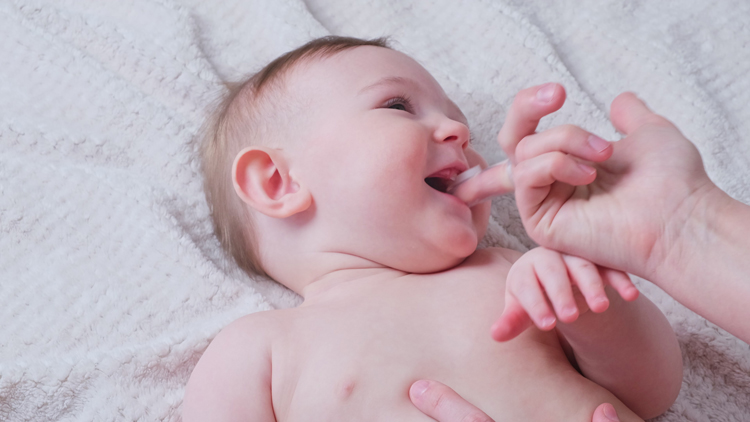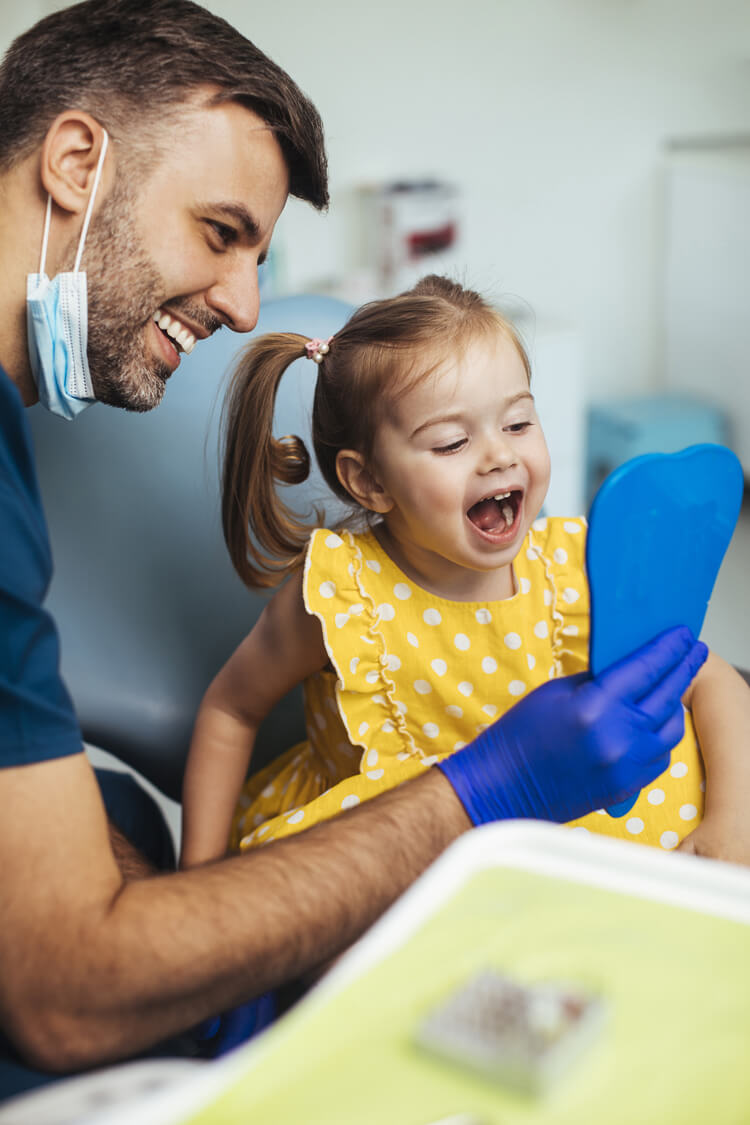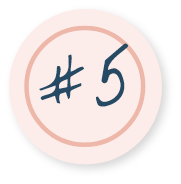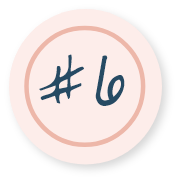
Taking Care of Tiny Teeth
- Home
- Live Well Blog
- Taking Care of Tiny Teeth
Teething is a big milestone for babies. Some babies start getting teeth around 3-4 months old, while others may not until they’re 6-12 months or even a bit later. It’s smart to start taking care of their teeth early to avoid future problems, build good habits, and help them get used to having their mouths cleaned.
Teething is a BIG milestone
Taking care of baby teeth is important, even though they’re temporary. Sugars in breastmilk, formula, and other foods can lead to cavities if not cleaned off teeth.
Tooth decay and cavities can be painful and cause problems with eating and weight gain.
Here’s what you can do to help take care of those tiny teeth:


WIPE:
After every feeding, use a damp washcloth to gently wipe your baby’s gums. This helps remove any milk or formula residue and bacteria.

BRUSH:
Once your baby’s first tooth pops up, use a small toothbrush with a tiny bit of fluoride toothpaste to brush it twice a day.

HAVE FUN:
Some kids don’t like brushing their teeth. Try making it a game, listening to a song, or brushing together so they can learn by watching you.

SUPERVISE:
As your child grows, help them try to brush their own teeth. Watch to make sure they clean all areas of their mouth and keep helping them until they can do a good job on their own.



DENTIST:
Take your child to the dentist after their first tooth comes in. The dentist might suggest fluoride treatment to prevent cavities.

PREVENT DECAY:
To help prevent harmful tooth decay:
- Avoid giving sugary drinks or snacks.
- Don’t let your baby fall asleep with a bottle.
- Switch to using a cup by your baby’s first birthday.
- Limit pacifier use by age 2 years.
